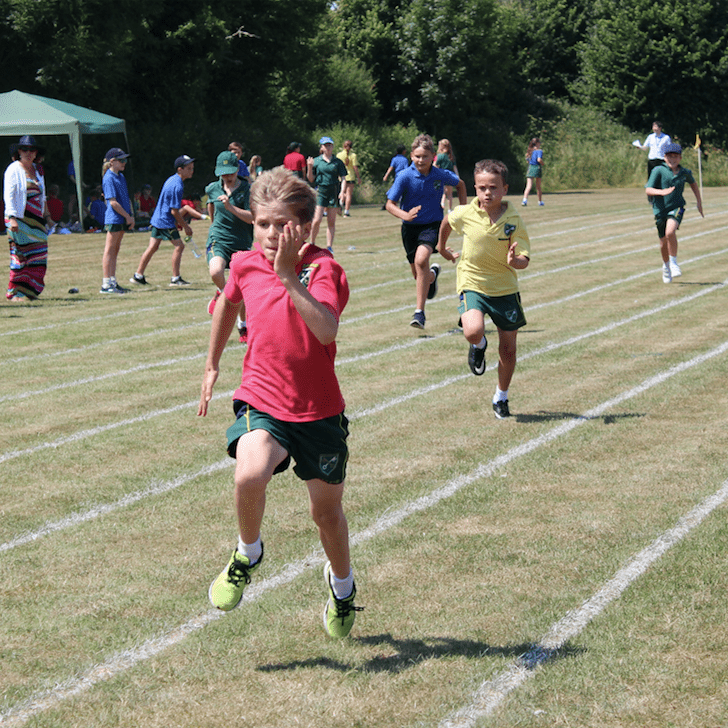Physical activity keeps children strong, healthy and has also been linked to improving mental health by decreasing depression, pain, loneliness and anxiety. It has also been proven to improve focus and performance in the classroom, up energy levels and those who commit to regular physical activity enjoy improved relationships. We recently wrote a blog about the importance of sports and games in school, but this week we’re focusing on the physical and mental benefits that regular exercise can have for children.
Physical Health
First and foremost, there are numerous benefits of activity for a child’s physical development. Regular activity taken at school during PE or extra curriculum sports clubs or at home with external clubs and even just a leisurely activity like a family walk can help to develop your child’s movement skills. Bones and muscles will become stronger, as will the heart, and consistent movement will help to keep your child at a healthy body weight. Activity will help to develop essential skills including balance, flexibility and posture, all of which will come in handy at multiple times throughout their life. Moderate exercise can even help to relieve premenstrual symptoms in girls as the body produces endorphins, a natural painkilling hormone that can ease abdominal pain and naturally improve mood.
Improved Brain Function
Perhaps a lesser known benefit of physical exercise is its positive effect on brain function. Research has suggested that there is a connection between partaking in regular moderate exercise and the size of the hippocampus section of the brain that is associated with learning and memory. Regular exercise can also release growth factors. These are chemicals that contribute towards the development of both brain cells and blood vessels in the brain. There are also general skills that are improved as a result of exercise including problem-solving, hand-eye coordination and a better ability to focus, all of which will benefit a child’s overall school performance.
Mental Health
Growing up is never straightforward, and there’s plenty of obstacles and setbacks that the world throws at our children that affect their confidence and mental health. Below are just some of the ways exercise can help children to regain control of the situation.
Improved Relationship with Body Image
Your child will soon discover how fun it is to be able to participate in physical activity and walk, swim, dance, hop, skip and jump ‘til their hearts’ content. As soon as they start to focus on what their body is capable of, as opposed to how it looks, they create a much healthier relationship with their body and are much less likely to feel self-conscious about the way it looks. Trying out new sports and setting different goals and objectives will give children something to work towards and feel a sense of accomplishment when they have managed to train their body to do something new. This will also provide a boost to their confidence and self-esteem – you can read more about ways to build self-esteem on our recent blog, here. As a parent, you can help your child develop this relationship with their body and exercise as soon as possible by encouraging them to participate in clubs both in and outside of school.
Reduced Levels of Anxiety
Anxiety can be a vicious cycle, with those who experience it tending to focus on more anxiety-inducing things. Regular exercise can help to break this cycle by distracting the brain and focusing on improving new skills and achieving success. Even just an hour training session provides a welcome escape to the constant feeling of anxiousness and committing to regular sessions per week will provide balance.
Better Social Networks and Relationships with Peers
At a time where making social connections is more important than ever, some children feel lonely and struggle to make friends for a variety of reasons. Team sports such as football, netball or rugby can help to create a sense of belonging and companionship, and by spending time together, working towards a common objective and sharing successes and failures, it would be difficult for teammates not to establish friendships and relationships outside of the sport. While any child suffering with social anxiety might find these group settings intimidating, the focus of sport will distract from any social pressures they are experiencing, and they’ll soon forget about anything off the pitch.
These are just some of the many benefits of regular physical activity on both physical and mental wellbeing. As parents, the best thing you can do to encourage a positive relationship with exercise from a young age is to minimise time spent inside in front of TVs/game consoles and maximise the time spent out and about, participating in new and exciting sports that your child will enjoy. If your child doesn’t enjoy a certain sport, it is not advisable to force them to go, as it will begin to seem like a chore and exercise will become something to avoid when they are old enough to make their own decisions. Instead, keep trying something new until they find something they are genuinely interested in. If you’d like to learn more about the sports offered at our private school in Devon, please don’t hesitate to contact us today and we would be happy to advise.









